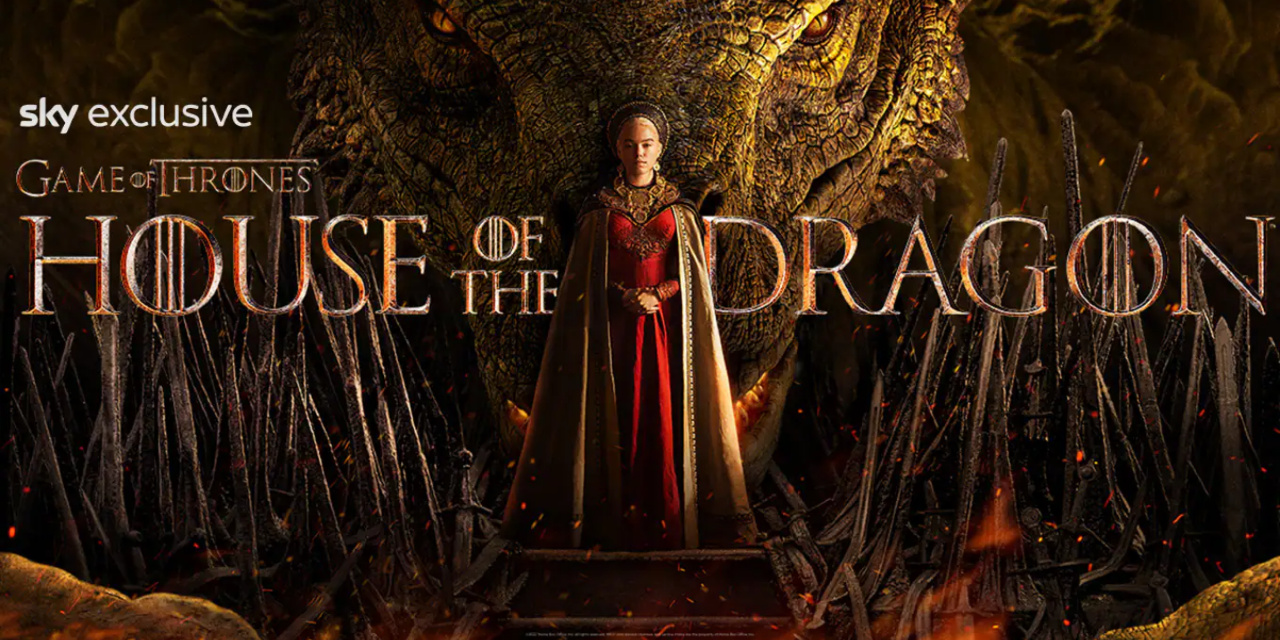Gerade ist „House Of The Dragon“, das Prequel zu Game Of Thrones, auf HBO (beziehungsweise in Deutschland auf SKY) gestartet. „House Of The Dragon“ beruht auf „Fire & Blood“, einem Buch des Game-Of-Thrones-Autors George RR Martin von 2018. Die damalige Review in der britischen Times zeigte sich wenig begeistert vom Buch:
„In a way, Martin’s big error with Fire and Blood is not unlike George Lucas’s, with his three godawful prequels to Star Wars. Both had originals to which fans would return, obsessively, precisely because their huge operatic backstories could only be imagined. And both men, eventually, appear to have been struck by a beard-stroking, mansplaining horror that these fans might be imagining them ever so slightly wrong. (…)
The story here, for want of a better word, begins with Aegon’s Conquest, when the Targaryens arrived in Westeros from across the sea. For those unfamiliar with what any of this means, a good starting point would be to think of medieval Britain being suddenly invaded by a single family of people who looked like the Milky Bar kid and rode dragons. As well as being distinctively pale — “flaxen of hair and violet of eye” as Martin puts it here, not infrequently — the Targaryens are wildly fond of incest. (…) For Martin, I fear, incest is sort of like normal sex, but sexier.
(…)
Unhappily, all 700 pages of this is written in the voice of Archmaester Gyldayn, a Westerossian historian. It is not a stretch to imagine how a pretend fantasy world historian might write, and Martin has not stretched himself in doing so. “It was said,” is often said. Nothing happens three times when it could happen “thrice”, and there’s no end of mayhapping. At some points, this gets frankly impenetrable. For example, reading that “the Kingsguard arrived from Dragonstone in the nonce,” I found myself powerless not to imagine an army of knights turning up in some sort of giant, paedophile-shaped Trojan Horse.
(…)
He also keeps throwing new flaxen-haired relatives into the mix, just when you’re almost getting the hang of the last lot. “Mayhap this would be a good place to add a few additional words about his sire, Corlys of House Velaryon,” he writes, at one point. Yeah, mayhap, mate. Mayhap not.
(…)
An awful lot of people are called Aegon or Aemon, and when they aren’t they’re invariably called something even more annoying. (…) Then there are the dragons, whose own sprawling dynasties hardly help matters. When I read that Viserys had become king because he was the last person to ride Balerion, I was genuinely unclear as to whether this was his dragon or his uncle.On and on it goes. Siblings marry, rapists are gelded, dragons fly around burning things. Wars between people with basically the same name start and end. Occasionally the narrative shows signs of flaring up into what could have been a proper story if Martin could have been bothered to write it properly. Essentially, it is all one long synopsis for about 50 books that he will never get around to writing, which itself has only been written because he can’t get around to writing the other two Game of Thrones books that his fans are waiting for. … Worse still, after a doorstop of a thing, we’re still a century and a half short of GoT even beginning, which means there’s another volume of this interminable, self-indulgent crap to come.“
(Hugo Rifkind, The Times)
„…the sheer scale and exhaustive detail in Fire and Blood makes reading it feel more like you’ve been assigned a mildly interesting, but often tedious, piece of homework.“
(Roisin O’Connor, The Independent)



